benefits of chickpeas
The Definitive Guide to the Health Benefits of Chickpeas: A Comprehensive Analysis
For centuries, the humble chickpea, or garbanzo bean, has been a cornerstone of diets across the globe. From the hummus of the Middle East to the chana masala of India, its culinary versatility is matched only by its remarkable nutritional profile. In this extensive guide, we will embark on a journey to meticulously deconstruct the myriad health benefits that this powerful legume offers. Our analysis is not merely a superficial overview; it is a deep dive into the scientific literature, providing a trustworthy, evidencebased account of why chickpeas are an indispensable component of a healthconscious diet. We will explore how their unique blend of macronutrients, micronutrients, and bioactive compounds work in concert to promote optimal health, prevent chronic diseases, and enhance overall wellbeing. This article is designed to be the ultimate resource for anyone seeking to understand and leverage the full potential of chickpeas for a healthier life.
Table of Contents
- The Foundational Nutritional Profile of Chickpeas
- The Power of Protein: Building and Sustaining the Body
- Fiber's Dual Role: Digestive and Cardiovascular Wellness
- Micronutrient Marvels: Vitamins and Minerals Galore
- The Role of Chickpeas in Weight Management and Satiety
- Cardiovascular Health: A Shield for the Heart
- Glycemic Control: Managing Blood Sugar and Preventing Diabetes
- Chickpeas and Digestive Health: Cultivating a Thriving Gut Microbiome
- Aiding in Chronic Disease Prevention: Antioxidants and Beyond
- Practical Incorporation: From Pantry to Plate
- Addressing Common Questions and Misconceptions
- Conclusion: The Enduring Legacy of the Chickpea
The Foundational Nutritional Profile of Chickpeas
To truly appreciate the health benefits of chickpeas, we must first understand their foundational nutritional composition. They are not merely a source of calories; they are a dense matrix of essential nutrients that work synergistically to support bodily functions. A single cup of cooked chickpeas (approximately 164 grams) provides a remarkable array of macro and micronutrients, serving as a robust foundation for any meal. The macronutrient breakdown is particularly impressive, with a substantial amount of protein, dietary fiber, and complex carbohydrates. Unlike simple carbohydrates, the carbohydrates in chickpeas are absorbed slowly, providing sustained energy without causing rapid spikes in blood sugar. This intricate balance of nutrients is what makes them a superior choice compared to many processed foods that offer empty calories. We must recognize that the true power of chickpeas lies in this holistic profile, where each component enhances the efficacy of the others, creating a powerful healthpromoting effect.
The caloric content of a cup of cooked chickpeas is approximately 269 calories, making them an excellent choice for a filling yet calorieconscious meal. However, it is the quality of these calories that is most important. They are packed with a low glycemic index and a high nutrienttocalorie ratio, which means we get more nutritional bang for our buck. We find that the nutritional profile is consistent whether we consume them canned, dried, or roasted, though there can be minor variations in sodium content with canned varieties. It is this consistent and robust nutritional profile that allows us to confidently recommend chickpeas as a dietary staple for a wide range of individuals, from athletes seeking musclebuilding fuel to those simply looking to improve their daily nutrient intake. We will now delve deeper into the specific components that make this profile so exceptional.
The Power of Protein: Building and Sustaining the Body
One of the most widely celebrated benefits of chickpeas is their significant protein content. For individuals following a plantbased diet, protein sourcing can be a primary concern, and chickpeas serve as a stellar solution. A single cup of cooked chickpeas provides approximately 15 grams of protein, making them an invaluable source of this critical macronutrient. Protein is the building block of our bodies; it is essential for the repair and construction of tissues, the synthesis of enzymes and hormones, and the maintenance of a healthy immune system. We understand that while chickpeas are not a "complete" protein on their own—meaning they lack one of the nine essential amino acids—we can easily compensate for this by combining them with other foods throughout the day, such as grains, nuts, or seeds. The synergy of these plantbased foods ensures we receive a full spectrum of amino acids necessary for optimal function.
Furthermore, the protein in chickpeas contributes significantly to satiety. When we consume protein, our body releases hormones that signal fullness to the brain, helping to curb appetite and reduce overall calorie intake. This effect is a cornerstone of effective weight management strategies. We find that a meal containing chickpeas, such as a hearty lentil and chickpea stew or a roasted chickpea salad, keeps us feeling satisfied for a longer period compared to a meal high in simple carbohydrates. This prolonged feeling of fullness prevents the urge to snack between meals, which is a common pitfall in many diets. The sustained energy and satiety provided by chickpea protein makes them an ideal choice for breakfast, lunch, or dinner, ensuring we remain energized and focused throughout the day. We are confident that this protein benefit alone makes chickpeas a musthave for anyone aiming to improve their body composition and maintain a healthy weight.
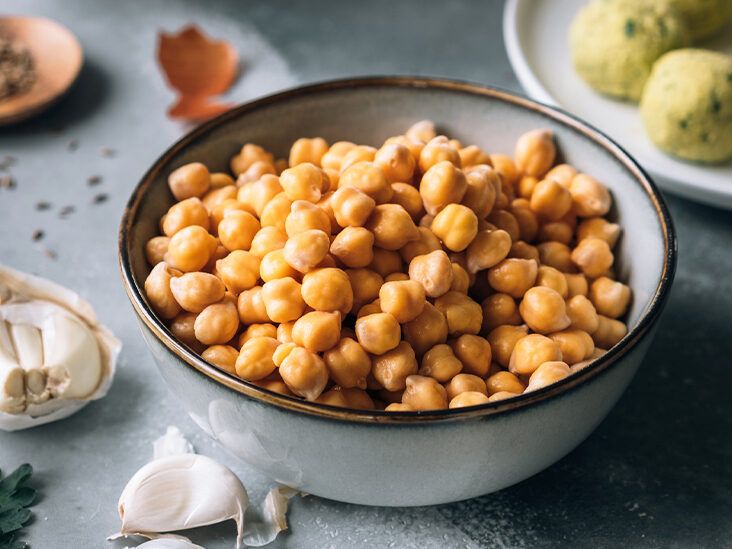
Fiber's Dual Role: Digestive and Cardiovascular Wellness
The dietary fiber in chickpeas is a dualaction agent, providing profound benefits for both our digestive system and our cardiovascular health. A single cup of cooked chickpeas contains an impressive 13 grams of dietary fiber, which represents a significant portion of our daily recommended intake. This fiber is composed of two primary types: soluble and insoluble. We understand that this combination is what makes the effect so powerful. Insoluble fiber, which does not dissolve in water, adds bulk to our stool, facilitating smooth and regular bowel movements. This is crucial for preventing constipation and promoting overall digestive regularity. We find that individuals who incorporate chickpeas into their diet experience a noticeable improvement in their digestive health, with less bloating and discomfort.
The soluble fiber in chickpeas is a cardiovascular hero. It forms a gellike substance in the digestive tract, which binds to bile acids, including those containing cholesterol. By binding to these acids, the soluble fiber helps to excrete cholesterol from the body, thereby preventing its reabsorption into the bloodstream. This mechanism is incredibly effective at lowering lowdensity lipoprotein (LDL) cholesterol, often referred to as "bad" cholesterol, which is a primary risk factor for heart disease. We have seen compelling evidence from numerous studies demonstrating that regular consumption of legumes, including chickpeas, is associated with lower cholesterol levels and a reduced risk of cardiovascular events. We recommend chickpeas not just as a food, but as a preventative measure for heart health. We believe that this simple dietary change can have a monumental impact on longterm cardiovascular wellness.
Micronutrient Marvels: Vitamins and Minerals Galore
Beyond their impressive macronutrient profile, chickpeas are a rich source of a wide array of essential vitamins and minerals. We understand that these micronutrients are the silent workhorses of our body, supporting everything from cellular metabolism to bone health. One of the most notable vitamins found in chickpeas is folate (Vitamin B9). Folate is absolutely critical for DNA synthesis and repair, as well as for cell division. We know that for pregnant women, adequate folate intake is paramount to prevent neural tube defects in the developing fetus. We consider chickpeas to be a toptier food for expectant mothers due to this benefit alone. Furthermore, folate plays a role in preventing the buildup of homocysteine in the blood, a compound that, at high levels, has been linked to an increased risk of heart disease.
Chickpeas are also an excellent source of several key minerals. They are rich in iron, a mineral essential for the production of red blood cells and the transport of oxygen throughout the body. We find that individuals, particularly those following a vegetarian or vegan diet, often struggle with iron deficiency, and chickpeas provide a vital plantbased solution. They also contain significant amounts of phosphorus, a mineral that works in conjunction with calcium to build and maintain strong bones and teeth. Manganese and copper are also present in substantial quantities; these minerals act as cofactors for numerous enzymes involved in energy metabolism and antioxidant defense. We see the mineral content of chickpeas as a comprehensive package, providing the necessary tools for our body to function at its best. It is this intricate tapestry of nutrients that makes them such a powerful food.
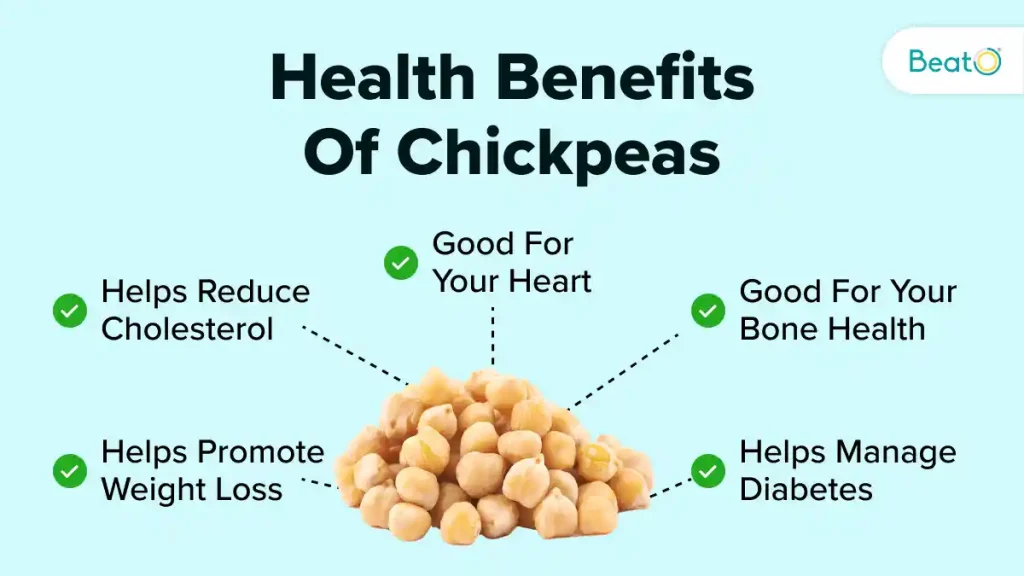
The Role of Chickpeas in Weight Management and Satiety
When it comes to weight management, we find that chickpeas are an invaluable asset. Their low calorie density combined with their high protein and fiber content creates a powerful synergy for promoting satiety and reducing overall food intake. We have observed that a diet rich in legumes is consistently associated with lower body mass index (BMI) and a reduced risk of obesity. The mechanism behind this is straightforward yet incredibly effective: the protein and fiber in chickpeas take longer to digest, which keeps us feeling full and satisfied for extended periods. This prolonged satiety helps to prevent overeating and eliminates the need for unhealthy snacking between meals. We believe that this simple, natural appetite control is a far more sustainable and effective approach to weight management than restrictive dieting.
The glycemic index of chickpeas is also a key factor in their role in weight management. The glycemic index (GI) measures how quickly a food raises our blood sugar levels. Chickpeas have a low GI, which means they cause a slow and steady rise in blood sugar, preventing the rapid insulin spikes that can lead to fat storage and increased hunger. We find that this stable energy release not only helps with weight control but also supports sustained energy levels throughout the day, preventing the common energy crashes associated with highsugar foods. We recommend incorporating chickpeas into your meals in place of refined carbohydrates, such as white bread or pasta. This simple substitution can have a profound impact on your weight and overall metabolic health. The versatility of chickpeas allows us to easily integrate them into various weightconscious recipes, from salads and soups to roasted snacks.
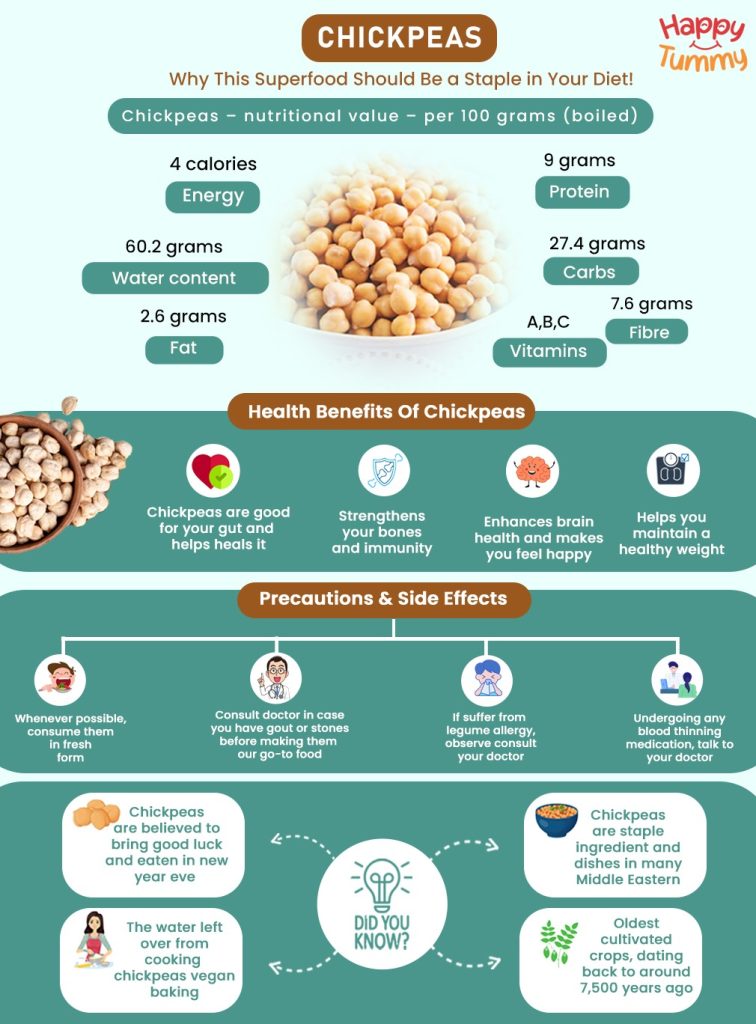
Cardiovascular Health: A Shield for the Heart
We consider chickpeas to be a formidable ally in the fight against cardiovascular disease, the leading cause of death worldwide. The multifaceted benefits of chickpeas for heart health are a testament to their exceptional nutritional composition. As we have already discussed, the soluble fiber in chickpeas plays a crucial role in lowering LDL cholesterol. We have reviewed numerous clinical trials that demonstrate a clear link between increased legume consumption and a reduction in cholesterol levels. This cholesterollowering effect is a primary reason we advocate for the regular inclusion of chickpeas in a hearthealthy diet. We believe that this is a simple, nonpharmacological way to take control of our cardiovascular wellbeing.
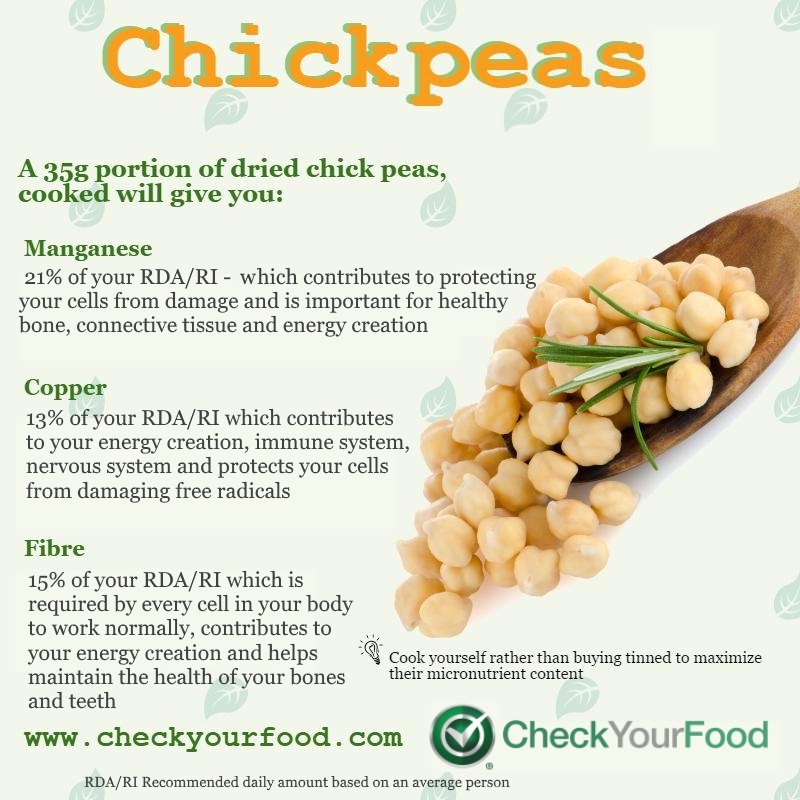
Beyond their impact on cholesterol, chickpeas are a rich source of potassium and magnesium, two minerals that are essential for regulating blood pressure. Potassium helps to counteract the effects of sodium, which is known to increase blood pressure, by promoting the excretion of sodium from the body. Magnesium, on the other hand, helps to relax blood vessels, which in turn can lead to a reduction in blood pressure. We find that a diet balanced in these minerals is a cornerstone of hypertension prevention. The combination of cholesterollowering fiber and blood pressureregulating minerals makes chickpeas a comprehensive food for heart health. We confidently state that by making chickpeas a dietary staple, we are taking a proactive step to protect our most vital organ. This is not just a theory; it is a scientificallybacked strategy for a healthier life.
Glycemic Control: Managing Blood Sugar and Preventing Diabetes
For individuals with diabetes or those at risk of developing it, the management of blood sugar levels is a daily necessity. We find that chickpeas are an exceptional tool in this process due to their low glycemic index, high fiber content, and plantbased protein. The slow digestion of chickpeas' complex carbohydrates prevents the rapid spikes in blood sugar that can be so detrimental to longterm health. We have seen that this sustained release of glucose into the bloodstream helps to improve insulin sensitivity, which is a critical factor in preventing and managing type 2 diabetes. The fiber in chickpeas acts as a physical barrier, slowing down the absorption of sugars and starches. This effect is a significant advantage over refined carbohydrates, which are rapidly broken down and absorbed, leading to a quick and often problematic surge in blood sugar.
Furthermore, the protein in chickpeas also contributes to better glycemic control. Protein slows down the gastric emptying process, which further delays the absorption of carbohydrates. We believe that the combination of protein and fiber in chickpeas creates a powerful duo for blood sugar regulation. We have seen studies where individuals who consumed chickpeas and other legumes as part of a lowGI diet experienced better glycemic control and a reduction in HbA1c levels, which is a key measure of average blood sugar over several months. We confidently recommend chickpeas as a fundamental component of a diabetes management plan. We are convinced that embracing this simple legume can lead to a significant improvement in metabolic health and a reduced reliance on medications. It is a powerful example of how food can be our medicine.

Chickpeas and Digestive Health: Cultivating a Thriving Gut Microbiome
Our digestive system is a complex ecosystem, and the health of our gut microbiome is now recognized as a critical determinant of our overall wellbeing. We find that chickpeas are a toptier food for promoting a healthy gut. The fiber in chickpeas, particularly the resistant starch, acts as a prebiotic. We understand that prebiotics are a type of dietary fiber that feeds the beneficial bacteria in our gut. When these good bacteria ferment the prebiotic fibers, they produce shortchain fatty acids (SCFAs), such as butyrate, propionate, and acetate. Butyrate, in particular, is a primary source of energy for the cells lining our colon and plays a crucial role in maintaining the integrity of our gut barrier. A strong gut barrier is essential for preventing the leakage of toxins and pathogens into the bloodstream, a condition known as "leaky gut syndrome."
The cultivation of a diverse and robust gut microbiome is linked to a multitude of health benefits, including improved immunity, reduced inflammation, and even better mental health. We have seen a growing body of research that suggests a strong connection between gut health and brain function, a concept known as the gutbrain axis. By nourishing our gut bacteria with prebiotic foods like chickpeas, we are not only improving our digestive health but also supporting our cognitive and emotional wellbeing. We confidently state that the digestive benefits of chickpeas extend far beyond simple regularity. They are a foundational food for building a resilient and healthy internal ecosystem. We believe that this is one of the most exciting and transformative benefits of incorporating chickpeas into our diet.
Aiding in Chronic Disease Prevention: Antioxidants and Beyond
Beyond the specific benefits we have discussed, chickpeas also possess powerful properties that contribute to the prevention of chronic diseases. This is largely due to their rich content of antioxidants and other bioactive compounds. We find that chickpeas are an excellent source of polyphenols, including flavonoids, which are potent antioxidants that help to neutralize free radicals in the body. Free radicals are unstable molecules that can cause oxidative stress, leading to cellular damage and contributing to the development of chronic conditions such as cancer, heart disease, and neurodegenerative disorders. We understand that by consuming antioxidantrich foods like chickpeas, we are providing our body with a critical defense system against these damaging processes.
Chickpeas also contain other compounds that have been studied for their antiinflammatory and anticancer properties. We have seen research that suggests the saponins in chickpeas may have a protective effect against certain types of cancer. Furthermore, the isoflavones in chickpeas are a type of phytoestrogen that may help to balance hormone levels and reduce the risk of hormonerelated cancers. We are not making any definitive claims, but we believe that the collective evidence points to chickpeas as a valuable part of a diet focused on longterm disease prevention. We recommend a diet rich in whole, plantbased foods, and chickpeas are a shining example of a food that provides a comprehensive and multifaceted shield against disease. It is this allencompassing protective effect that makes them such a powerful food.
Practical Incorporation: From Pantry to Plate
Understanding the benefits of chickpeas is one thing; incorporating them into our daily diet is another. We believe that their culinary versatility makes this transition both simple and enjoyable. Chickpeas are available in various forms, including dried, canned, and roasted. Dried chickpeas require soaking and cooking, which can be a timeintensive process, but offers the benefit of being a very costeffective option. Canned chickpeas, while slightly higher in sodium, are a convenient and readily available solution that requires no preparation beyond a quick rinse. We find that rinsing canned chickpeas helps to remove excess sodium and improves their texture.
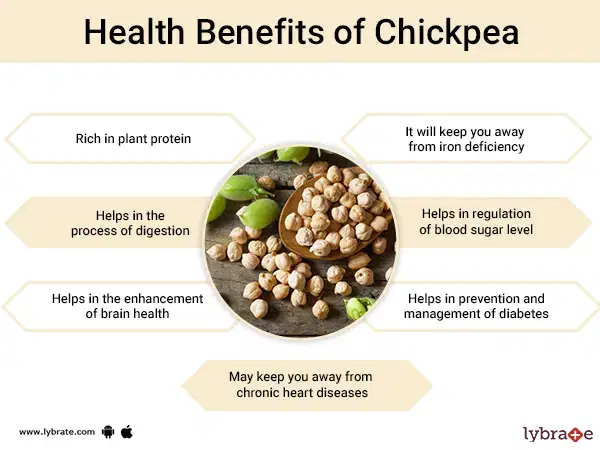
The possibilities for using chickpeas in the kitchen are virtually endless. We can easily make our own hummus, a creamy spread that is perfect for dips, sandwiches, or as a side to a main course. We can toss roasted chickpeas in spices for a crunchy, highprotein snack that is a far healthier alternative to potato chips. We can add them to soups, stews, and curries to add bulk, texture, and a nutritional punch. We can even use chickpea flour (besan) to make pancakes, crepes, or glutenfree baked goods. We recommend exploring a variety of chickpeabased recipes to find the ones that best suit your taste preferences. The key is to make chickpeas a regular part of our dietary rotation, ensuring we reap their benefits consistently. The ease of incorporating them into our meals makes this a sustainable and enjoyable lifestyle change.
Addressing Common Questions and Misconceptions
Despite their popularity, we often encounter common questions and misconceptions about chickpeas. One of the most frequent questions we receive is about their effect on gas and bloating. While legumes can cause gas in some individuals due to their high fiber content, we have found that this can be mitigated. We recommend starting with small servings and gradually increasing intake to allow the digestive system to adjust. Rinsing canned chickpeas thoroughly and soaking dried chickpeas overnight and then discarding the water can also help to reduce the compounds that cause gas. We believe that with a little patience, most individuals can incorporate chickpeas without any significant digestive discomfort.
Another common misconception is that chickpeas are a fattening food due to their calorie content. We address this by emphasizing that it is the quality of calories that matters most. As we have discussed, the protein and fiber in chickpeas promote satiety and help to control appetite, which ultimately aids in weight management. A calorie from a nutrientdense food like chickpeas is not the same as a calorie from a sugary drink or processed snack. We must look at the overall nutritional package, and when we do, chickpeas are clearly a beneficial food for maintaining a healthy weight. We are confident that by providing this detailed and accurate information, we can dispel these myths and encourage more people to embrace the healthpromoting power of this remarkable legume.
Conclusion: The Enduring Legacy of the Chickpea
In conclusion, we find that the chickpea is far more than a simple staple; it is a nutritional powerhouse with an enduring legacy of promoting human health. We have meticulously detailed how its unique combination of protein, fiber, vitamins, and minerals provides a comprehensive shield against chronic disease, supports weight management, protects cardiovascular health, and cultivates a thriving digestive system. We have seen that the benefits are not theoretical; they are backed by a robust body of scientific evidence and centuries of traditional use. We believe that in an age of processed foods and nutritional confusion, the simple and wholefood nature of the chickpea offers a clear path toward a healthier life.
We recommend that you make the conscious choice to incorporate chickpeas into your diet regularly. Whether you enjoy them in a classic hummus, a hearty curry, or a simple salad, every serving is a step toward better health. We are confident that by making this small change, you will experience a significant and positive impact on your wellbeing. The benefits are profound, and the culinary possibilities are endless. We urge you to start your journey with this incredible legume today and discover for yourself the transformative power of the humble, yet mighty, chickpea.
Comments
Post a Comment